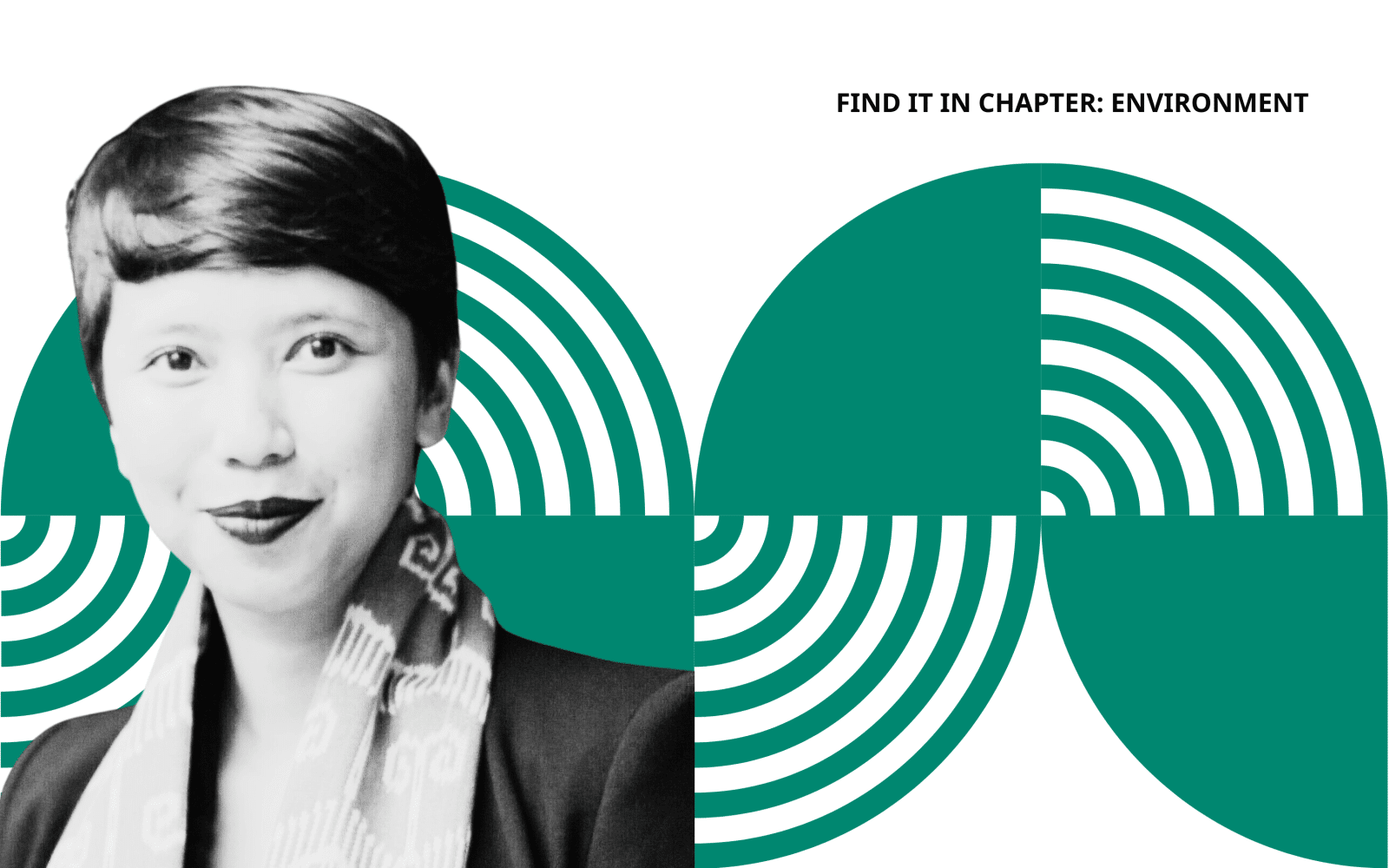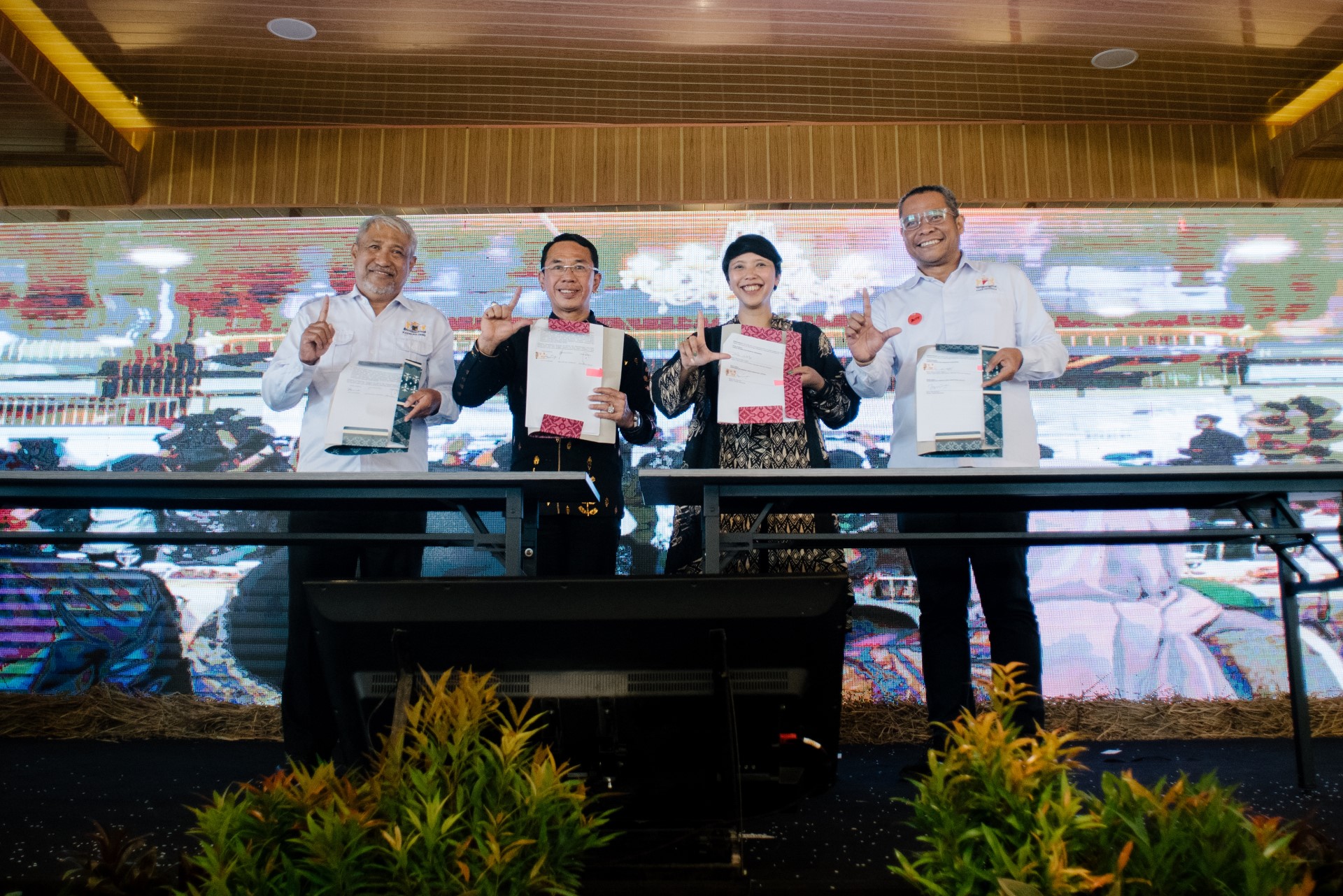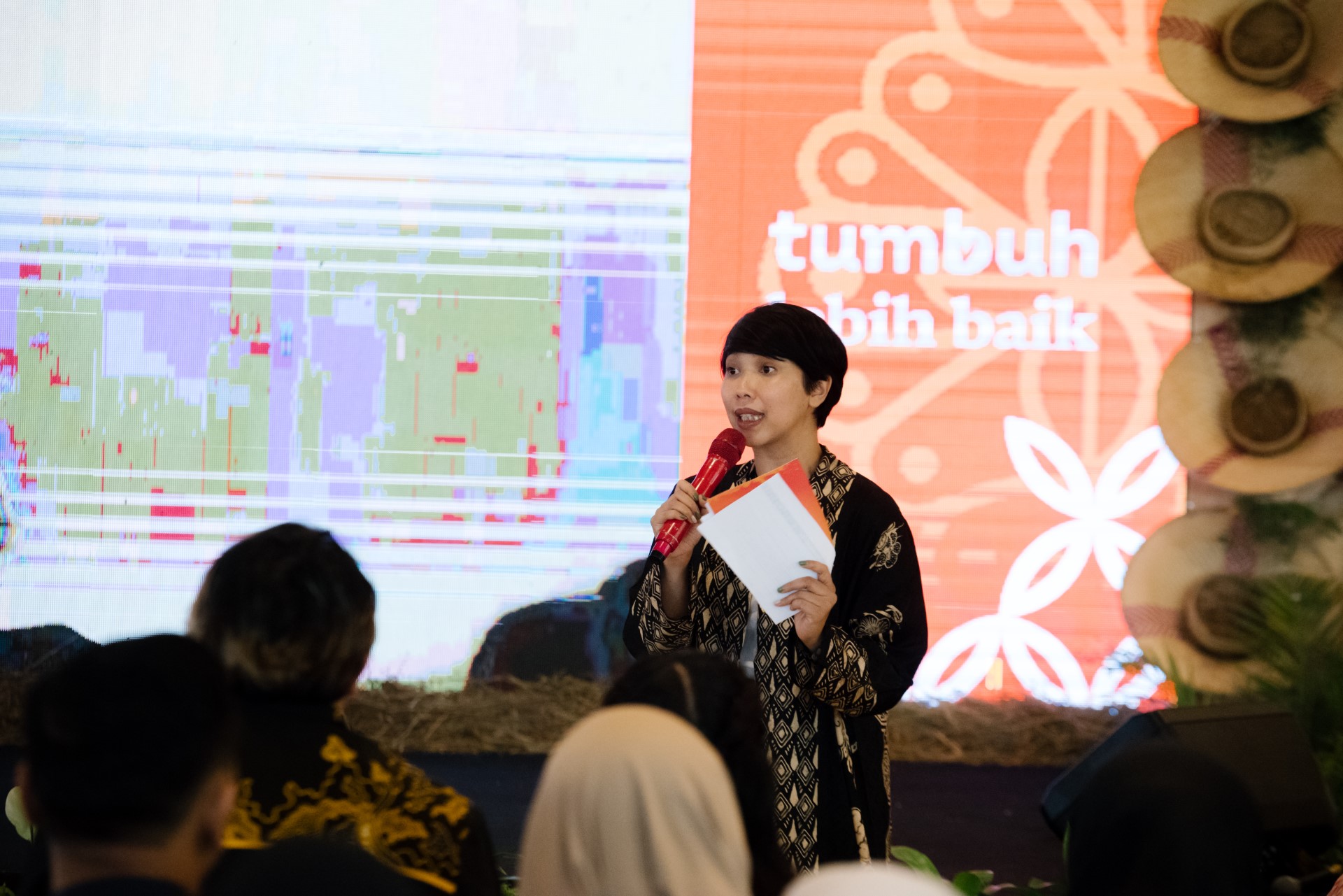Gita Syahrani
Secretariat Head, LTKL
Fellow project website: www.kabupatenlestari.org
Indonesia’s peatlands, 20% of the world’s totals conserve as much carbon as all of Indonesia’s forests. Working with the peatland’s local communities and young people, Gita is introducing new forms of livelihood that work well for both people and peat.

THE NEW IDEA
Gita convinced the leaders of nine rural districts with substantial peatlands to create Indonesia’s Sustainable Districts Association, or LTKL. To become a member, each LTKL district committed to creating development plans that protect at least fifty percent of the essential ecosystems within the district’s jurisdiction and improve the well-being of at least 1 million families living in or around peatlands and forests that provide biodiversity and related ecosystem services.
With this commitment Gita led a successful effort by LTKL to bring together 26 private and public institutions to attract quality investment for new job and business opportunities in the nine districts. One district decided to harvest and market albumin derived from a fish which lives in local peatland canals. Albumin contains high protein and has been proven effective as a medication for wounds. The health of the fish directly correlates to the health of the peat, creating a business case for maximizing peatland and preserving its environment.
"LTKL hopes to open up greater market opportunities, enable sustainable investment, and encourage multistakeholder collaboration to develop and communicate sustainable narratives of environmental conservation efforts and sustainable economies in LTKL member districts.”
Media Indonesia
The investment group secured investors, built a high-quality lab and production centers, found long-term buyers for their product, and won national and international recognition.

This success prompted other districts to implement the same model, including districts outside of LTKL membership. Gita’s next step, already underway, will be to create a broader district network, with the goal of eventually extending to all the seventy-nine districts that contain within their boundaries 80 percent of Indonesia’s peatland and 25 percent of its forest resources.
THE PROBLEM
According to the Indonesian Ministry of Environment and Forestry, forests cover 57% of Indonesia’s land area, while peatlands cover only 1%. Despite this difference in land area, and while precise estimates vary, reports indicate that, on average, one hectare of Indonesian peatlands conserves approximately 50 times more carbon than one hectare of Indonesian forest land.
A major reason for this higher carbon density is that the peatlands buildup has taken place over thousands of years by dead plant matter that has partially decomposed by being waterlogged and anaerobic conditions. From a carbon capture perspective, that means substantial removal of Indonesia’s peatlands on one percent of the country’s land area would result in a very large and permanent reduction in Indonesia’s natural sequestration of carbon.
In 2016 the Indonesian government issued Presidential Rule No. 1. It banned the conversion of peatlands into plantations and required companies to restore degraded peatlands. It also mandated that existing plantation companies halt peatland development until they completed an approval peatland development plan. But it didn’t ban peat harvesting, and satellite imagery has revealed that peatlands degradation continue.
"The LTKL aims to bridge the funding gap by creating districts that can attract investment capital – in part by establishing long-term uptake agreements with companies that want to comply with the Sustainable Development Goals (SDGs).”
Ecosystem Marketplace

THE STRATEGY
Gita moves carefully, district by district, to ensure that each new member district will agree to its membership requirements, which are more restrictive than what current Indonesia government environmental regulation allows with respect to peat harvesting and forestry management practices.
For existing as well as newly accepted LTKL member districts, Gita has persuaded the ministries of Investment, Trade, as well as the Chamber of Commerce and Industry, and the Indonesian Employers Association to commit to launch at least 100 large-scale green investment opportunities and more than 200 micro-, small- and medium-sized enterprises with up to USD 200 million.
One way Gita builds community among the LTKL member districts is through Festival Lestari, a joint event hosted by LTKL member districts to showcase local products, tourism, culture, and culinary programs, as well as potential development opportunities. The annual festival invites public figures, artists, potential sponsors/investors, and representatives from the central government, strengthening these collaborations and attracting national investors. Gita also uses the festival to embed local young professionals in district programs for the future. Festival Lestari has become a powerful margit for collaborative work, leading to other, bigger collaborations within the LTKL ecosystem.
"Initiatives like Lingkar Temu Kabupaten Lestari send a strong signal that districts are serious about ensuring this. It needs real collaboration between various stakeholders both at the national and regional levels as well as support from the international community.”
Tribunnews
A second key priority for Gita is carefully drawing new member districts. Seeing LTKL’s many successes, more districts now want to join LTKL, including those in the remaining “priority” carbon capture districts. As a first step, to build trust and lay out a “member transition plan” for each prospective member district to follow, Gita connects the district to TAL, a social enterprise in LTKL’s network of partners. TAL provides professional consulting services to support districts seeking LTKL membership to identify economic projects that would be consistent with LTKL’s vision and values. Also included among these projects are needed infrastructure investments in transport, communication, education, and health. At this stage ten more districts have begun working with TAL. They are reallocating their budgets, investing more in sustainable businesses, and empowering youth in their local community in furtherance of their application to be admitted to LTKL.
The third element of Gita’s strategy is having young people step up and bring their own ideas and entrepreneurial energy to their LTKL district as well as other member districts. She has begun preparing them through Generasi Lestari, a program for young people that mentors them in how to become changemakers. LTKL also successfully scouts the best of this young talent to become local LTKL representatives. Each of the current nine districts now has a youth organization in which young people lead activities -- conducting workshops on entrepreneurship, helping small businesses market their products via e-commerce, producing their own local products, and creating nationwide youth events and other activities.
Generasi Lestari youth participants in the Siak district founded Skelas, or Siak Sustainable Creative Center, which teaches young people how to be entrepreneurs, with courses on public speaking, marketing, financial planning, and the like. Skelas is now an independent group that hosts its own national-level event. In another district young people founded a group to develop small businesses that can produce sustainable products. The goal of Generasi Lestari is that young people understand that they don’t have to move to Jakarta to become successful, because their hometown already has natural resources that provide a wealth of opportunities for them.
THE PERSON
One of Gita’s earliest memories is her grandmother, who taught her to talk to plants while watering them. Gita’s grandmother told her that the plants would be happy to simply hear her talk about her day, which is what Gita did for most of her young life, making nature her friends and family. One day when Gita was in kindergarten, her trusted rickshaw driver casually kicked a dog that was blocking the road. This moment made her determined to ‘make everyone love animals and nature...’ and even today, she marks this as the moment she found her lifelong goal.
Gita took a double degree in Environmental Law & Business Law at Padjajaran University – the only student to do so. During her first job at a law firm, she convinced the owner to open an environmental law division, and later became the division’s head. Her entrepreneurial mindset led her to become an expert in financial instruments, working with the government of Indonesia in implementing funding from Norway to mitigate the effects of deforestation. Gita then pioneered working with rural districts to protect the environment and uplift the economy of local people.
Her leadership in this work had its breakthrough when she inspired two districts to commit to a new framework: conserving the environment through sustainable economic practices that raise people’s living standards. The two districts then scaled up and invited Gita, as the leading voice in the effort, to work on the bigger coalition, which was the genesis of LTKL. Believing that regulations alone could not change behaviors and that it would take collective action to design and implement deeply a new framework, Gita established and leads LTKL impacts and its going social and environmental.